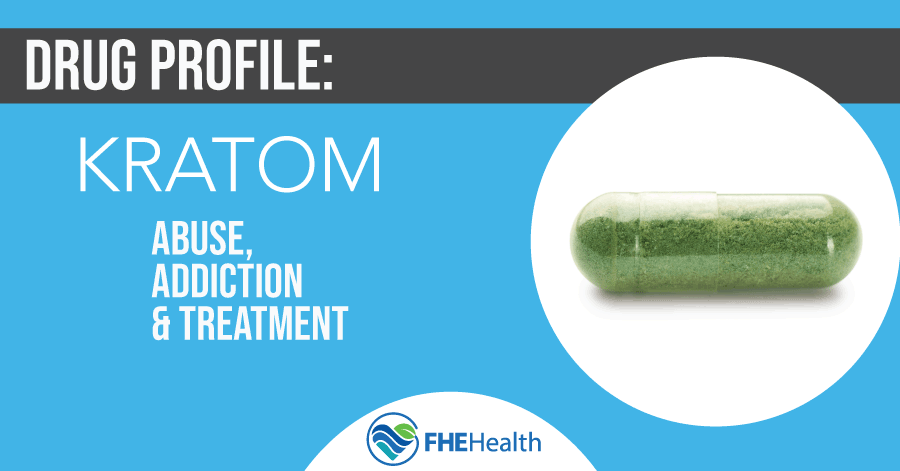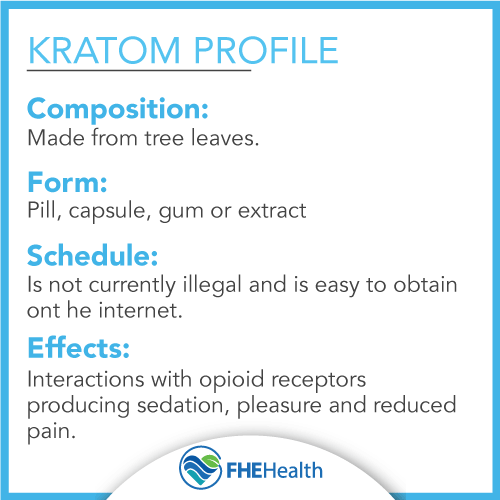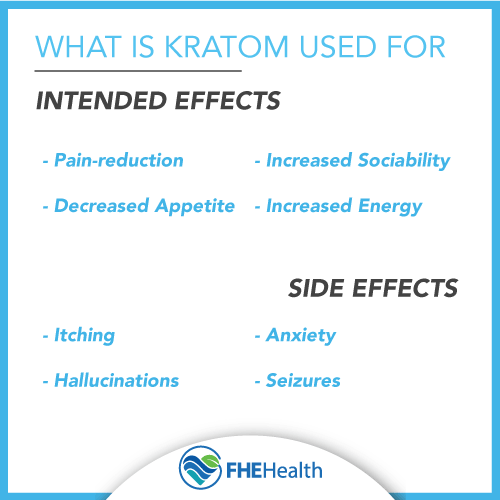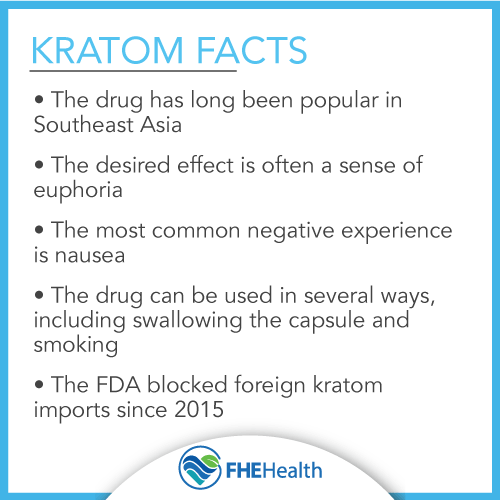
In comparison to other drugs, like cocaine and heroin, kratom is relatively unknown in the United States and, accordingly, is not yet considered a controlled substance and has no official schedule determination. Statistics indicate that only around 1.7 million Americans partook in kratom in 2021 – just 0.5% of the U.S. population.
Used both to get high as well as a self-medicated treatment for opiate withdrawals, kratom is still largely untested with unknown long-term side effects. However, as a substance that provides euphoria and a high similar to morphine, it is possible to become addicted to kratom.
What Is Kratom?
Kratom, occasionally misspelled as Cradem or Craydom, is a derivative of a tropical tree native to Southeast Asia, primarily the Philippines and New Guinea. When consumed, it has psychotropic effects similar to club drugs and some milder forms of opiates.
In its natural form, kratom looks like a leaf from any number of trees. When sold commercially, it generally comes in a dried form that is pulverized to be made into a tea or in a capsule form that can be swallowed or cracked open and mixed into a beverage. Some users will swallow a spoonful of powdered kratom and then chase it with soda or juice. While less common, it can also be sold as a resin, extract, or gum. Anecdotal evidence indicates that kratom tea yields fewer pain-relieving benefits but boosts the euphoric effects.
The kratom drug is occasionally sold or referred to by alternate names, including:
- Biak
- Ketum
- Kakuam
- Ithang
- Thom
As kratom is not illegal, it’s relatively easy to obtain on the internet, in head shops, or on the street. Kratom can no longer be imported to the U.S. as a supplement but kratom pills are still sometimes sold as a form of incense in tobacco shops. It is important to note that this position is likely to change; the Drug Enforcement Agency has announced its intentions to categorize kratom under Schedule I of the Controlled Substances Act but this action has not yet taken place.
In spite of a lack of movement on the federal level, some states have taken action. Six states and several cities, including Sarasota, FL, have banned kratom, implementing laws related to its use.
What Does Kratom Do?
 Kratom is largely appreciated for its euphoric effects. After taking a dose, many users feel happy, stress-free, calm, and relaxed. It has similar properties to both opiates and stimulants as two of the primary components in kratom, mitragynine and 7-α-hydroxymitragynine, bind to opioid receptors in the brain. Mitragynine also addresses other parts of the brain to produce an effect similar to that of a stimulant, increasing the sensations experienced by users.
Kratom is largely appreciated for its euphoric effects. After taking a dose, many users feel happy, stress-free, calm, and relaxed. It has similar properties to both opiates and stimulants as two of the primary components in kratom, mitragynine and 7-α-hydroxymitragynine, bind to opioid receptors in the brain. Mitragynine also addresses other parts of the brain to produce an effect similar to that of a stimulant, increasing the sensations experienced by users.
In small doses, side effects are largely pleasant, but increasing usage can have the opposite effect, much like other addictive substances. Kratom side effects can depend on amounts ingested but in high doses, users commonly report experiencing:
- Itching
- Anxiety
- Nausea
- Constipation and increased urination
- Loss of appetite
- Fatigue of loss of consciousness
- Sweating
- Dry mouth
- Hallucinations
- Seizures
While less severe, most of these effects are similar to those of regular opiate use.
Debates on Efficacy
Kratom can certainly be used to get high, but it also has a strong popularity in one niche community: recovering opiate addicts. The process of quitting opiate use is extremely challenging; physical withdrawal side effects can be debilitating and painful, with users experiencing flu-like symptoms, paranoia, insomnia, sweating, nausea, diarrhea, and vomiting. Those attempting to detox without professional interference often use again within the first 24 hours in order to negate withdrawal symptoms. Due to the similarities between kratom and opiates on the body, taking kratom in low doses for a limited amount of time can anecdotally alleviate symptoms.
However, the medical efficacy of this tactic has not been studied and kratom’s effectiveness for this purpose is highly debatable. Regardless, replacing one addictive substance with another without a doctor’s supervision, as is the case with methadone or Suboxone® regimens, is never suggested.
Kratom Addiction
As with any substance or activity that produces a high-like feeling, kratom is indeed addictive. As a drug that acts on brain structures, kratom can result in both mental and physical dependence with withdrawal occurring in heavy or long-term users after cessation of use.
Some users view kratom as a lesser evil due to its popularity among opiate users, but this is a false equivalency. One drug taken to minimize the effects of another drug is essentially trading one addiction for another. Even those who utilize kratom to overcome withdrawal and decrease heroin cravings, for example, are still at risk for kratom addiction.
Signs of Kratom Abuse
 Signs of kratom abuse are similar to other forms of drug abuse. However, due to the largely legal nature of obtaining kratom in the U.S., drug-seeking behavior may be less pronounced in those who use kratom versus those who must obtain drugs illegally.
Signs of kratom abuse are similar to other forms of drug abuse. However, due to the largely legal nature of obtaining kratom in the U.S., drug-seeking behavior may be less pronounced in those who use kratom versus those who must obtain drugs illegally.
Signs of kratom abuse include:
- Withdrawal from friends, families, and hobbies
- Making excuses to avoid social events
- Lying about behavior
- Failing job performance
- Relationship troubles, including extreme responses to minor problems and lack of affection
- Financial troubles due to an increased investment in drugs
Those who are taking kratom may also show physical signs of withdrawal when unable to access adequate doses or in between doses. These symptoms include:
- Trouble focusing
- Aching muscles
- Insomnia
- Anxiety
- Aggression and hostility
- Mood swings
- Runny nose
Any drug that changes the functionality of the brain will result in withdrawal, and kratom is no different. Those who are addicted to kratom will show these kinds of withdrawal signs within four to eight hours of missing a dose.
Effects of Use
Due to the untested nature of kratom and the lack of clinical studies regarding its use among participants in the United States, many long- and short-term effects are still unknown. Evidence of potential dangers are present, however, and the DEA considers kratom to be a “drug of concern.” Studies indicate that mixing kratom with other drugs, including psychoactive drugs, may result in dangerous side effects, like seizures.
It is possible to overdose on kratom, with one source citing over 460 calls to poison control centers in 2016 alone regarding kratom abuse. At least 36 deaths were associated with kratom use in 2017. The symptoms of overdose can vary but may include:
- Tremors
- Listlessness
- Hallucinations and delusions
- Nausea
Kratom may also contribute to the worsening of other conditions, including anorexia, insomnia, and constipation. Long-term heavy use may contribute to liver and kidney failure.
Treatment for Kratom Addiction
 Treatment for kratom addiction may be required for those who have heavy usage habits or who show signs of abusive behavior, including impacts on social relationships, compromised job performance, or financial struggles.
Treatment for kratom addiction may be required for those who have heavy usage habits or who show signs of abusive behavior, including impacts on social relationships, compromised job performance, or financial struggles.
As kratom is still legal and testing is only in its early stages, there are as of yet no specific treatment paths for those living with an addiction to kratom. However, some individuals have found success in traditional programs, following similar steps to opiate rehabilitation.
Due to the addictive nature of kratom and the effects to the brain, detox is a beneficial first step for those seeking recovery from kratom addiction. In this time, users can work with medical professionals and therapists to move through the withdrawal process in a safe way, overcoming the first major hurdle on the way to sobriety.
Traditional inpatient treatment can also be beneficial for kratom use disorders. In residential rehab, recovering users can work through the drivers behind drug use, learn healthy coping mechanisms, and identify safe outlets for stress and anxiety. Residential programs also provide the opportunity for group and individual therapy, providing outlets for both self-exploration and peer bonding. As with rehabilitation for other forms of addiction, outpatient therapy, either at home or in a halfway house, is also beneficial in teaching the skills necessary to support sobriety. At FHE Health, both partial hospitalization programs and intensive outpatient programs are available and encouraged.
Addiction is never easy, regardless of the substance of choice. In spite of federal policy changes, addiction is possible. Thousands of people are currently suffering the effects of kratom use and abuse, resulting in the need for comprehensive treatment. At FHE Health, we are dedicated to being this resource, offering a full spectrum of care throughout the recovery process. Please contact us today to learn more about how our team can make a difference.






